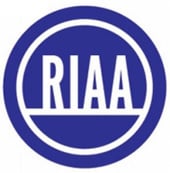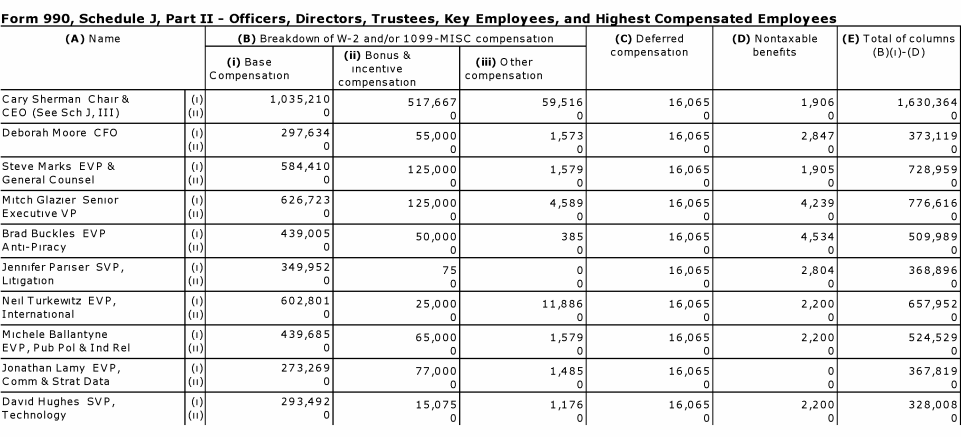 The RIAA has just submitted its latest tax filing to the IRS, covering the fiscal year ending March 31, 2014. Time for us to see where the music industry’s anti-piracy arm stands.
The RIAA has just submitted its latest tax filing to the IRS, covering the fiscal year ending March 31, 2014. Time for us to see where the music industry’s anti-piracy arm stands.
In previous years the RIAA reported a massive decline in revenue after the record labels cut back on their membership dues, but this trend now appears to have stopped.
Total revenue according to the latest filing is $24.2 million, a slight increase from $24.1 million the year before. Despite the stabilizing income, which mostly comes from the record label’s membership dues, the RIAA continues to trim employees.
Over the past five years the number of employees at the RIAA has been slashed in half, dropping from 117 to just 55.
In its most recent filing the RIAA lists 55 people on the payroll compared to 58 the year before. In total these employees earned $11.7 million of which more than 25% went into the pockets of three top executives.
Interestingly, while more than half of the organization’s workers have been let go, the RIAA’s top employees have enjoyed salary increases year after year, including some healthy bonuses.
The top earner in the year ending March 2014 was CEO Cary Sherman with a $1.6 million a year payout for a working week of 50 hours. Sherman’s base salary is a cool million dollars, but that was boosted with a half million bonus and other compensation.
Other high income employees were Mitch Glazier (Senior Executive VP), Steve Marks (General Counsel) and Neil Turkewitz (EVP International) with $776,616, $728,959 and $657,952 respectively, including over a quarter million in bonuses.

While these incomes are significant, they are relatively modest compared to other industry groups. For example, MPAA boss Chris Dodd earns $3.3 million, while its former General Counsel Henry Hoberman earned close to a million.
Looking at other expenses reported in the tax return we see that the RIAA spent $2.3 million on lobbying, a figure that has remained relatively stable over time.
The same cannot be said for the group’s legal fees, which dropped from $16.50 to $1.28 million in a few years. In part, this is because the expensive lawsuits against individual file-sharers and services such as Limewire have ended.
Most recently the RIAA started another lawsuit, this time targeting the music linking site MP3Skull, so perhaps the amount spent will increase again in future years.
The full 2013/2014 filing is available here.





